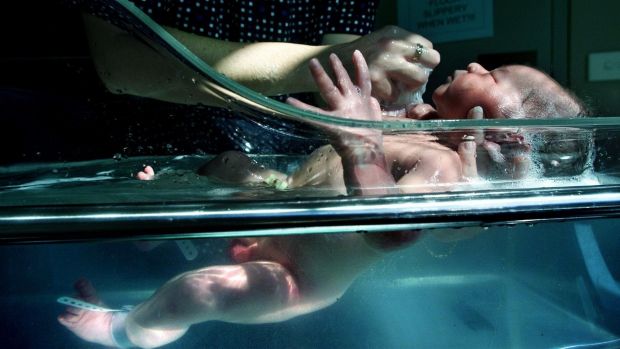Despite serious incidents and near misses regularly occurring in public maternity health services, the Queensland government is overlooking both the extent and the root cause of the problem.
In January, Health Minister Cameron Dick vowed to conduct a statewide review of midwife staffing levels throughout the state following the tragic death of a newborn.

While this is an important first step in reducing maternal and infant deaths, it ignores the core issue – that midwives throughout Queensland are working without obstetrician supervision or input.
This is not a recent crisis and the Health Minister is aware of AMA Queensland's concerns. Last October, we recommended a number of changes to the way public maternity health services were delivered, purely to improve outcomes for mothers and babies.
We have since repeated these concerns in meetings with the Health Minister.
So, what will it take for the Mr Dick to take decisive action?
Last June, an independent clinical review of four incidents at Rockhampton Base Hospital identified issues including a failure to assess expectant mothers correctly and to notify obstetricians promptly when complications arose or labour was not progressing.
These issues could be easily addressed by implementing the Royal Australian and New Zealand College of Obstetricians and Gynaecologists (RANZCOG) guidelines for when problems or concerns need to be raised with an obstetrician but, to date, Queensland Health has failed to do so.

The problem does not lie solely in midwife staffing levels.
It lies in the government's commitment to a midwife-only approach that current Australian and overseas research shows is not the best model of care.

Several research studies show that preventable trauma and deaths are continually occurring under midwife-led models of care.
Here in Queensland, 11 babies in every thousand die in the public system, compared with seven per 1000 in the private hospital system.
Queensland's private hospital system has a true multidisciplinary model of care, with obstetricians and midwives working together.
Our public system has abandoned this model, which is a grave mistake that must be corrected. The Australian College of Midwives has argued that outcomes between public and private systems cannot be compared because of differences in populations and models of care.
The Health Minister himself has said that mothers in the public system are more likely to have complex needs and chronic conditions such as obesity and diabetes.
And this is precisely our point – it is even more important for obstetricians to be involved from the outset. This doesn't take away a woman's right to choose how she wishes to give birth.
But, when research shows the best outcomes for mothers and babies are achieved by maternity care teams led by an obstetrician, it is irresponsible to sideline the only health professionals who can pre-emptively handle whatever complications arise during pregnancy and birth.
An expectant mother in Queensland's public system can go through her entire pregnancy and birth without ever being examined by an obstetrician.
Even in a "low-risk" pregnancy, however, complications may develop that midwives simply are not trained to handle.
In fact, recent Australian research shows that in about half of pregnancies assessed as low risk, an obstetrician will need to step in to deliver the baby safely.
If an obstetrician is involved early on, complications may be anticipated and mitigated before they become serious.
This is not "medicalising" pregnancy and birth – it is simply providing the best level of care we can offer. In many cases, early intervention may save the life of the mother, the baby, or both.
There are valid medical reasons for an obstetrician being involved in every pregnancy and we need not spend a single extra cent to use our currently employed obstetricians more effectively.
That's why we are calling for a truly independent review of Queensland's maternity services, conducted by an impartial expert.
We believe the government must undertake this immediately and fearlessly, without prejudice or favour, without worrying about the election cycle or fostering an impression that everything is fine. AMA Queensland wants to work together so that every mother-to-be has the best possible care and the best possible outcome – a healthy baby.
Dr Chris Zappala is president of the Australian Medical Association Queensland.
